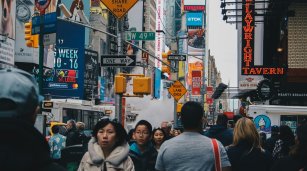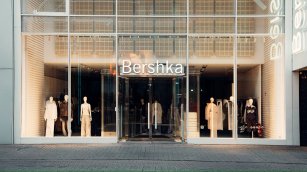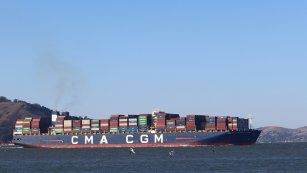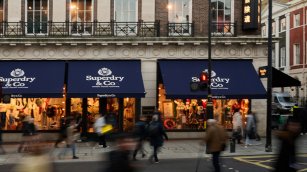Fashion Giants Set Sights on Venezuela: H&M Enters as Inditex Brings Bershka and Pull&Bear
After closing all its stores in the market in 2021, the Spanish group will raise the shutter on two of its young chain stores in the capital. The Swedish company is also preparing to enter the country.


The two major fashion retail giants are giving a new opportunity to the Venezuelan market. Inditex is preparing the landing in the country of Bershka and Pull&Bear, while H&M is finalizing the launching of stores in the market by the end of the year, according to Modaes. Both companies will operate in Venezuela through local partners.
A year after the Inditex group raised the shutter in Caracas of the group’s largest store in Latin America, a Zara flagship of 5,000 square meters spread over two floors, in the coming weeks, Bershka and Pull&Bear will again launch stores in the country, as confirmed by Modaes sources of the company. The group will open the doors of the new Pull&Bear point of sale, a space that will have an area of 640 square meters. The Swedish conglomerate H&M, for its part, will disembark in the market before the end of the year with a store in the Sambil shopping center in Caracas. Inditex sources have not commented on the matter.
Political instability, economic volatility, social conflicts and tax pressure are some of the complex features that make the Venezuelan market one of the most challenging and restrictive, especially for foreign companies. In addition to its high tax burden, relative to the size of its economy, there are high tariffs for countries without trade agreements in force and an unpredictable environment that discourages investment or the entry of international companies.
However, in 2024, the economy of the world’s largest oil power showed, for the first time in years, some signs of recovery marked by falling inflation. In this context, the Galician giant Inditex understood that it was time to make peace with Venezuela, a country in which the group’s stores dawned, in February 2013, with the message “Closed due to usury”. At that time, the government forced the closure of the nine stores with which the Spanish company operated in the country, accusing the company of arbitrarily raising prices.
Inditex will open two Bershka and PUll&Bear stores in Caracas in the coming weeks.
Previously, Inditex had come to operate in the Venezuelan market with some twenty stores. In 2007, still under the presidency of Hugo Chávez, Inditex signed an alliance with the local company Phoenix World Trade to franchise its stores.
In 2021, and with the pandemic hit, Inditex packed its bags and left the unstable market where it had arrived in 1998, closing five stores (two of Zara, two of Bershka and one of Pull&Bear). The Galician company’s farewell, however, was not definitive: at the end of the first half of last year, Zara returned in a big way with a flagship store in the capital. It did so through its franchisee in the country, the Futura group, which went on to manage its only store in the Sambil shopping center.
Zara’s return to the market laid the first stone of a return journeythat the group presided by Marta Ortega wants to carry out prudently and progressively. Under a franchising system with the same partner and in the same Sambil shopping center in Caracas, Inditex will install again, in the coming weeks, a Pull&Bear store and a Bershka store, which will have an area of 600 square meters.
The Spanish group left the country in 2021, in an unstable country and after the pandemic hit.
For the time being, the Spanish group does not contemplate other openings imminently and plans to assess market interest through the activity of these three stores. Although Inditex has reduced its interest in Latin America by 10% with 71 closures in the last five years, these openings are an encouraging message for the region, where the company operates 650 stores.
Inditex, which landed on the continent in 1992 with a first opening in Mexico, is extending its current commercial network to 19 markets such as Argentina, Uruguay, Chile, Brazil and Peru. At the end of fiscal 2024, the Mexican market had 401 stores. The Colombian market, meanwhile, ranked second in terms of the number of stores, with a total of 63.
The Galician company’s commitment to Venezuela will not be the only one in the coming months. The Swedish H&M, number two in the world of fashion distribution, plans to enter the market at the end of the year. Like Inditex’s new stores, the first H&M store will be located in the Sambil shopping center in Caracas, where other large companies in the sector such as Levi’s, Calvin Klein or the Spanish Cortefiel also operate.
H&M will land in Caracas before the end of the year with a local partner.
Inaugurated in 1998, Sambil was a milestone in the modernization of shopping malls, which has energized the Venezuelan commercial landscape. Located in the municipality of Chacao (Caracas), the complex has a surface area of 250,000 square meters distributed over five floors and houses more than 500 stores.
H&M’s arrival in Venezuela will be carried out by Hola Moda, the Nordic company’s franchisee in Central America and the Caribbean. The company is also behind the arrival of the Swedish group in Brazil and El Salvador.
With these upcoming entries, H&M will extend its presence to thirteen countries in Latin America. The Nordic company operates in the region with more than two hundred stores located in Mexico, Peru, Uruguay, Chile, Colombia, Dominican Republic, Ecuador, Guatemala, Panama and Costa Rica.

Looking ahead to next year, H&M is finalizing its arrival in another Latin American country: Paraguay. In the case of Brazil, the group has already secured the opening of three stores, two in Sao Paulo and one in the city of Campinas.
H&M landed in Latin America in 2012 when it launched its first store in the region in Mexico. Currently, the North American country is the main market in the territory for the Swedish group by number of stores.
Despite its extensive presence in Latin America, H&M has not entered new markets for several years, the last bastion conquered by the company was Uruguay, where it began operating in 2018. In this sense, 2025 will be a key year for the Swedish group as it will add three new markets in the region: Brazil, El Salvador and Venezuela.

















